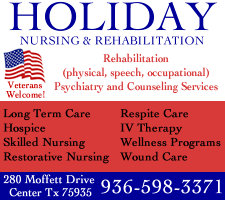August 25, 2017 - Disaster situations, such as a hurricane, can have a significant impact on everyone’s safety, but they can be especially upsetting and confusing for individuals with dementia.
Families and caregivers of persons with memory disorders need to know how to address the special needs of a person with Alzheimer’s during an emergency. In addition to normal hurricane preparation, the following emergency preparedness guidelines can assist families and caregivers coping with Alzheimer’s.
Plan ahead
1. Make an emergency plan:
- The American Red Cross website offers information about preparing for an emergency and where to find shelter and supplies in a disaster.
- The National Hurricane Center provides hurricane alerts and tips to prepare for a hurricane.
- Ready.gov has information about what to do before, during and after a disaster.
2. Take specific needs into account: For example, if the person with Alzheimer’s or other dementia uses a walker or portable oxygen, be sure your emergency evacuation plans accommodate these needs. If an individual lives in a residential facility, learn about its disaster/evacuation plans. Find out who is responsible for evacuating the person in the event of an emergency.
3. Identify those who will help you: Are there friends or relatives you can stay with if you have to evacuate? If the person receives routine health procedures at a clinic or with home health, who are the back-up service providers? Have contact information easily accessible.
4. Learn how to get prescriptions and care: Purchase extra medication to have a supply on hand. Download Medicare’s Getting Care and Drugs in a Disaster Area. It explains how Medicare beneficiaries have special rights to get out-of-network care if they live in an area where the President has declared a disaster.
5. Make sure medical records are accessible: It’s important to have access to health records, especially in the case of an emergency. There are now many options for storing personal health records, including online services that make it possible to access records from anywhere in the world. Regardless of how you choose to store personal health information, make sure there are people other than the primary caregiver who have access to or copies of the person with dementia’s medical history, medications, physician information and family contacts.
Have an Emergency Kit
Being prepared in case of an emergency is crucial. Put together an emergency kit in a watertight container, and store it in an easily accessible location.
- Copies of important documents, such as legal papers, a list of medications and dosages, and insurance information
- Several sets of extra clothing – Easy on/off clothes make changing simplier
- Extra medication – Use waterproof bags to hold medications and documents
- Incontinence products
- Identification items, such as a MedicAlert® + Alzheimer’s Association Safe Return® ID bracelet and clothing labels
- A recent picture of the person with dementia
- Physician’s name, address, phone numbers, including cell phone
- Bottled water
- Flashlight with extra batteries
- Favorite items or foods
- Earphones (calming music) loud areas may increase agitation of our love one
- Simple activities – photo album, scrapbooks, or twiddle-muffs
If your loved one lives in a residential facility, find out about its disaster and evacuation plans. Ask if you will be responsible for evacuating your loved one.
Other helpful information from the Central and North Florida Chapter
If a hurricane is coming your way:
- Heed and follow all emergency announcements and weather warnings.
- If the need to evacuate is likely, do not delay. Try to leave as early as possible to minimize long delays in heavy traffic.
- Alert others (family, friends, and medical personnel) that you are changing locations, and give them your contact information. Contact them regularly as you move.
- Be sure there are people other than the primary caregiver who have copies of the person with dementia’s medical history, medications, and physician information and family contacts.
- Purchase extra medications.
- Stock up on bottled water, non-perishable foods.
- Locate a pillow, toy, or something else to hug.
- Have the Alzheimer’s Association and MedicAlert + Safe Return phone numbers.
During an evacuation:
Persons with dementia are especially vulnerable to chaos and emotional trauma. They have a limited ability to understand what is happening and they may forget what they have been told about the disaster. Be alert to potential reactions that may result from changes in routine, traveling or new environments including: agitation, pacing, wandering and delusions or hallucinations.
- When appropriate, inform others (hotel or shelter staff, family members, airline attendants) that your loved one has dementia and may not understand what is happening.
- Do not leave the person alone. It only takes a few minutes to wander away and get lost.
- Changes in routine, traveling, and new environments can cause agitation and wandering behaviors including hallucinations, delusions and sleep disturbance.
- Do your best to remain calm. The person with dementia will respond to the emotional tone you set.
Tips for preventing agitation:
- Reassure the person. Hold hands or put your arm on his or her shoulder. Say things are going to be fine.
- Find outlets for anxious energy. Take a walk together or engage the person in simple tasks.
- Redirect the person’s attention if he or she becomes upset.
- Move the person to a safer or quieter place, if possible. Limit stimulation.
- Make sure the person takes medications as scheduled.
- Schedule regular meals and maintain a regular sleep schedule.
- Avoid detailed explanations.
- Provide additional assistance with all activities of daily living.
- Pay attention to cues that the person may be overwhelmed (fidgeting, pacing).
- Remind the person that he or she is in the right place.
Helpful hints during an episode of agitation:
- Approach the person from the front and use his or her name.
- Use calm, positive statements and a patient, low-pitched voice. Reassure.
- Respond to the emotions being expressed rather than the content of the words. For example, say, “You’re frightened and want to go home. It’s ok. I’m right here with you.”
- Don’t argue with the person or try to correct. Instead, affirm his or her experience, reassure and try to divert attention. For example, “The noise in this shelter is frightening. Let’s see if we can find a quieter spot. Let’s look at your photo book together.”
Take care of yourself:
Now more than ever caregivers need help managing their stress and handling some of the behaviors their loved ones may be experiencing during a hurricane.
- Take care of yourself by finding a good listener to hear your thoughts and feelings about the event.
- Find moments to breathe, meditate and reflect.
The Alzheimer’s Association staff can provide counseling, support and assist displaced families in finding care for their loved ones. Call us at 1-800-272-3900.
Below are additional disaster preparedness guides and information caregivers:
Alzheimer’s Association – Caregiver Center: In a Disaster
Texas Health and Human Services – Emergency Preparedness
FEMA & Red Cross Preparedness for People with Disabilities
Disaster Preparedness and Planning for Populations with Dementia and Other Vulnerabilities, An Annotated Bibliography – August 2016
Ready Houston – Regional Disaster Preparedness
State of Texas Emergency Assistance Registry (STEAR) – Public
STEAR One-Page Flyer (PDF)
STEAR Volante Informativo de Una Pagina (PDF)









